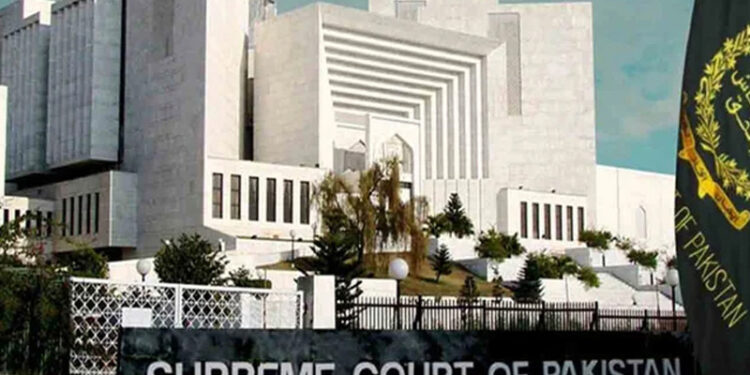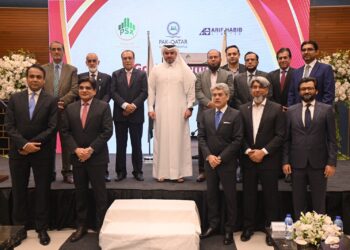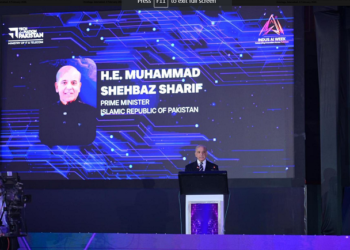Islamabad: The Supreme Court of Pakistan has adjourned until tomorrow the hearing of eight bail appeals filed by Pakistan Tehreek-e-Insaf (PTI) founder and former Prime Minister Imran Khan. These appeals are related to multiple cases arising from the May 9, 2023 riots, which broke out following Imran Khan’s arrest last year.
The three-member bench, headed by Chief Justice Yahya Afridi, heard the matter. During the proceedings, the Assistant Prosecutor sought an adjournment on the grounds that the Prosecutor General is unwell and unable to attend. While the prosecution initially requested a delay until next week, the Chief Justice made it clear that the court will resume proceedings tomorrow instead of a longer adjournment.
The case once again highlights the complex legal challenges facing Imran Khan, who has been in custody amid a series of high-profile cases since his removal from office in April 2022.
Background: May 9 Events and Legal Fallout
The bail appeals stem from the events of May 9, 2023, when violent protests erupted across Pakistan after Imran Khan was arrested by paramilitary forces in connection with a corruption case. The demonstrations, which spread from Islamabad to Lahore, Peshawar, and other cities, led to widespread clashes between PTI supporters and security forces.
Several incidents from that day, including attacks on military installations, the burning of government buildings, and vandalism of public property, were widely condemned by the state. The government subsequently registered dozens of cases against PTI leaders and workers, accusing them of orchestrating or inciting the unrest.
Imran Khan, though denying involvement, has been named in multiple cases. His legal team argues that the charges are politically motivated, designed to sideline him from Pakistan’s political landscape.
Courtroom Proceedings: What Happened Today
Prosecution’s Request for Adjournment
At the outset of the hearing, the Assistant Prosecutor requested that the case be postponed until next week due to the illness of the Prosecutor General, who was supposed to present the government’s arguments. This request was opposed by PTI’s legal team, which emphasized the urgency of the matter given Khan’s prolonged detention.
Chief Justice’s Response
Chief Justice Yahya Afridi responded firmly, noting that the bench is determined to proceed with the hearings without unnecessary delays. He stated:
“The hearing is being held tomorrow. We will see tomorrow.”
This comment signaled the Court’s intention to maintain momentum in the case while acknowledging the prosecution’s difficulties.
PTI Lawyer’s Plea for Sisters’ Voice
During the proceedings, PTI lawyer Salman Safdar requested permission for Imran Khan’s sisters to address the bench. The sisters have been vocal about Khan’s detention conditions and have consistently highlighted concerns over his health and safety. However, the bench rejected the plea, clarifying that only the appointed counsel would be heard in legal arguments.
Imran Khan’s Legal Battles: A Timeline
Imran Khan, who served as Pakistan’s Prime Minister from 2018 to 2022, has faced a wave of legal cases since his ouster through a no-confidence vote. Some of the most notable include:
- Toshakhana Case: Khan was convicted in a corruption case related to state gifts, resulting in his disqualification from holding public office.
- Cipher Case: Related to allegations of mishandling classified diplomatic documents.
- May 9 Cases: Multiple FIRs lodged after violent protests, accusing Khan of incitement to violence and terrorism-related offenses.
- Contempt of Court Proceedings: At different stages, Khan has also been summoned for remarks against judiciary and institutions.
His supporters argue that these cases represent a systematic campaign to remove him from politics ahead of elections, while opponents insist accountability must be enforced regardless of political stature.
PTI’s Position and Strategy
The PTI legal team has consistently maintained that the May 9 cases are politically motivated. Lawyer Salman Safdar has repeatedly emphasized that Imran Khan had no direct role in organizing or encouraging violence on that day. Instead, they argue that Khan was already in custody at the time, making it impossible for him to direct events.
PTI leaders also claim that the government’s crackdown has unfairly targeted thousands of workers, with many still languishing in jails without trial. According to PTI sources, nearly 10,000 workers were arrested in the aftermath of the May 9 protests, although many have since been released on bail.
Government’s Stance
The federal government, however, views May 9 as a turning point, labeling it as a “black day” in Pakistan’s history. Authorities argue that the violence was not spontaneous but orchestrated by PTI’s top leadership to pressure institutions and destabilize the state.
Prosecutors maintain that Imran Khan must be held accountable not only as a political leader but also as someone who benefited politically from the unrest. For the government, securing convictions in these cases would reinforce the narrative that no individual is above the law.
Significance of the Bail Appeals
The outcome of these eight bail appeals carries immense significance:
- For Imran Khan: A favorable ruling could provide temporary relief, allowing him to focus on his other pending cases and strengthen his political campaign.
- For PTI: It would boost the morale of the party’s base, which views Khan’s imprisonment as an injustice.
- For the Government: Denial of bail would support the state’s position that Khan remains a threat to public order and accountability processes.
Legal experts believe that while bail does not determine guilt or innocence, the Supreme Court’s stance will set the tone for how the judiciary navigates politically sensitive cases in the coming months.
Broader Political Context
Impact on Elections
Imran Khan’s imprisonment has already reshaped Pakistan’s political landscape. Despite his absence from the campaign trail, PTI-backed candidates performed strongly in the 2024 general elections, indicating his enduring popularity. Analysts suggest that any relief granted by the courts could further energize his support base.
Civil-Military Relations
The May 9 incidents, particularly attacks on military installations, have strained PTI’s relationship with Pakistan’s powerful military. For decades, civil-military relations have influenced Pakistan’s politics, and May 9 represented one of the rare moments where protesters directly confronted the military’s authority.
International Concerns
The political and legal drama surrounding Khan has drawn international attention. Human rights groups have urged Pakistan to ensure fair trials and due process, while foreign governments remain cautious in their public statements, emphasizing the need for stability.
Public Reaction and Media Coverage
The adjournment of the hearing has been widely covered across Pakistan’s media. For Khan’s supporters, the delay is seen as yet another attempt to prolong his legal troubles. On social media, PTI activists expressed frustration, trending hashtags demanding Khan’s immediate release.
Conversely, critics argue that PTI is seeking to politicize the judiciary by continuously framing Khan’s trials as a conspiracy rather than engaging with the evidence presented.
What Happens Next?
The Supreme Court will resume hearing the appeals tomorrow, where both the prosecution and PTI’s defense team are expected to present their arguments in detail. The Court’s decision could involve:
- Granting bail in one or more cases, providing Khan with temporary relief.
- Rejecting bail, keeping him in custody.
- Partially granting relief, depending on the evidence and legal grounds in individual cases.
Legal analysts believe the judges will carefully balance the legal merits of the appeals with the political sensitivities of the situation.
Conclusion
The Supreme Court’s adjournment of Imran Khan’s bail appeals until tomorrow marks another crucial moment in Pakistan’s unfolding political and legal drama. With the May 9 cases at the center of controversy, the outcome of these hearings will not only affect Khan’s immediate future but also shape the trajectory of PTI and Pakistan’s political stability.
As the nation waits for the Supreme Court’s next move, one thing remains clear: Imran Khan’s legal battles are far from over, and each hearing brings new implications for Pakistan’s democracy, rule of law, and future governance.

























